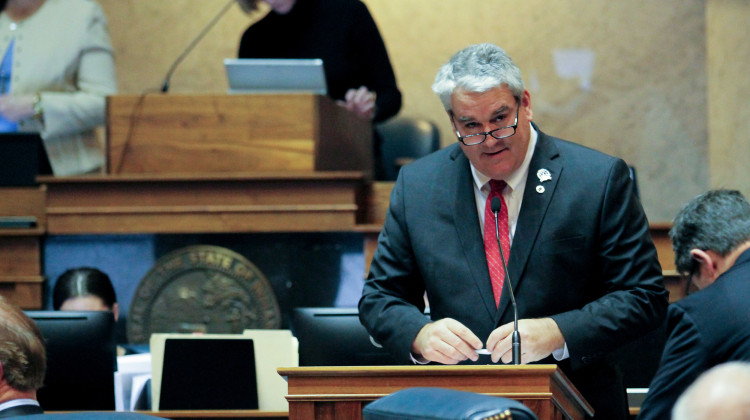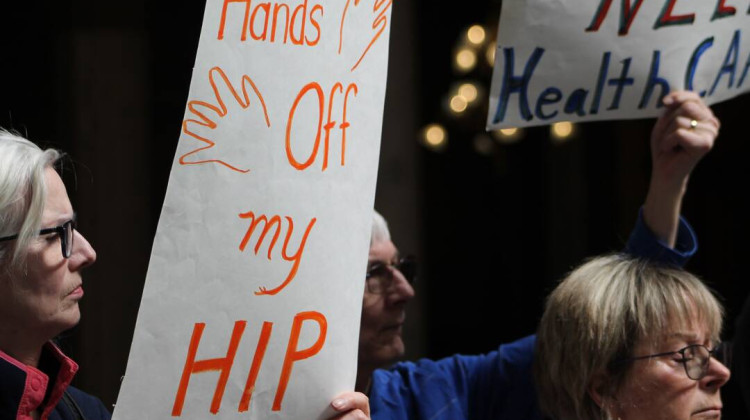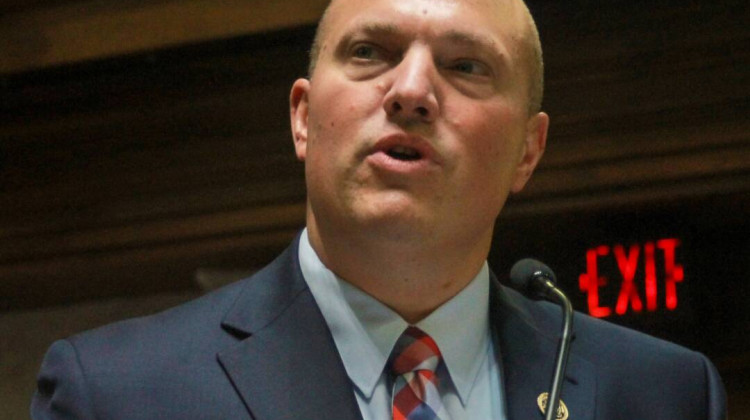
Sen. Andy Zay (R-Huntington) is not a part of the task force, but spoke to his fellow lawmakers on the legislative committee about some concerns he had from the audit. He said the data suggests the current structure increases costs.
Lauren Chapman / IPB NewsIndiana has some of the highest health care costs in the country — and lawmakers continue to look into what’s causing them. This year’s Health Care Cost Oversight Task Force began with some questions and concerns about pharmacy benefits managers, or PBMs.
The purpose of PBMs are to lower drug prices by acting as an intermediary between health insurers, drug manufacturers and pharmacies. But lawmakers question how much they contribute to growing health care costs. An audit of data from the major PBMs for Medicaid and the state employees' health plan could help answer that.
Sen. Andy Zay (R-Huntington) is not a part of the task force, but spoke to his fellow lawmakers on the legislative committee about some concerns he had from the audit. He said the data suggests the current structure increases costs.
“If the PBMs by design were to be saving the state money, they have failed miserably,” Zay said.
Several PBMs haven’t shared all the necessary data, meaning the audit hasn’t been completed yet. Zay said that lack of transparency makes it difficult to understand the effect PBMs have on Indiana’s health care costs.
Ray O'Neel manages audit services for RXConnection, the company that performed the audit. He said they found only one entity met the financial guarantee in their contract.
“We did uncover financial performance issues for a majority of PBMs that had financial guarantees within a contract,” O’Neel said. “Almost every single PBM did fail to meet those performance guarantees.”
O’Neel made a series of cost-saving recommendations for the state, such as limiting what’s known as “offsetting” — a process where PBMs may fail to reach some goals but use the parts of their contracts where they surpassed goals to cover costs they owe back to the state.
Join the conversation and sign up for the Indiana Two-Way. Text "Indiana" to 765-275-1120. Your comments and questions in response to our weekly text help us find the answers you need on statewide issues.
O’Neel also highlighted the role that vertical integration plays in how PBMs can increase costs.
Vertical integration refers to when a company owns multiple parts of the same supply chain. In the case of pharmaceuticals, an insurance company may own a PBM and a manufacturer.
“What that oftentimes does, is they'll steer members toward their own pharmacies with enticing incentives and contracts that will allow them to kind of double dip on both sides,” O’Neel said.
Zay said lawmakers should explore options to combat rising costs due to PBMs.
“Clearly, doing it the same way we have always done it is only costing Hoosier taxpayers more money,” Zay said.
The Health Care Cost Oversight Task Force meets again on Nov. 13.
Abigail is our health reporter. Contact them at aruhman@wboi.org.
 DONATE
DONATE






 Support WFYI. We can't do it without you.
Support WFYI. We can't do it without you.